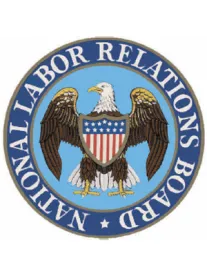The NLRB in General Motors on Tuesday reversed an agency judge’s ruling which provided that the employer, General Motors, violated the NLRA by suspending a worker who used the F-word at his supervisor. By adopting the “Wright Line” standard for considering offensive language in the workplace, the NLRB held that the worker’s suspension was permissible in light of the worker’s conduct. General Motors makes clear that employers can discharge or otherwise discipline their workers for engaging in deeply offensive and abusive conduct, including racially inappropriate language or language of a sexual nature.
The “Wright Line” Standard
The NLRB’s decision in General Motors adopts the “Wright Line” standard for analyzing unfair firing or discipline cases based upon offensive and/or profane conduct by employees. Under the “Wright Line” standard, to establish a violation of the NLRA, an employee must first prove that his/her protected activity was a motivating factor in the employer’s decision to discipline. If the employee or his/her representative(s) meet this burden, then the employer has the opportunity to establish that it would have taken the same disciplinary action even in the absence of the protected activity. The “Wright Line” standard has been used by the NLRB previously to analyze disciplinary actions taken when employees have been out on strike or raised safety concerns.
Up until Tuesday’s ruling, the NLRB had employed various standards for analyzing worker conduct. These tests resulted in significant liberties for workers who impulsively behaved while engaging in activities protected under the NLRA. For example, the NLRB previously issued a decision that made a caterer rehire a server who cursed at his boss’ family in a vulgar Facebook post. Another decision mandated that a tire company rehire a striker who lobbed racist comments at replacement workers. NLRB Chairman John Ring provided in a statement that it “is a long-overdue change in the NLRB’s approach to profanity-laced tirades and other abusive conduct in the workplace.”
To Sum It Up
The “Wright Line” standard should encourage a reduction in workplace discrimination and harassment resulting from offensive language in the workplace, while providing greater protections to employers who discipline employees for conduct that is profane and/or offensive in nature. This approach both effectively protects employee rights in concerted activity and ensures that employers may take appropriate disciplinary action when employee conduct crosses the line from protected concerted activity into the realm of hateful, profane, offensive speech that is destructive to a modern work environment.





 />i
/>i
